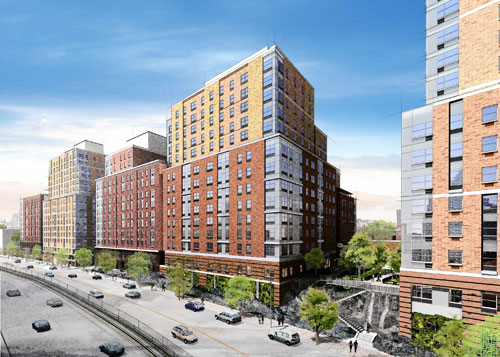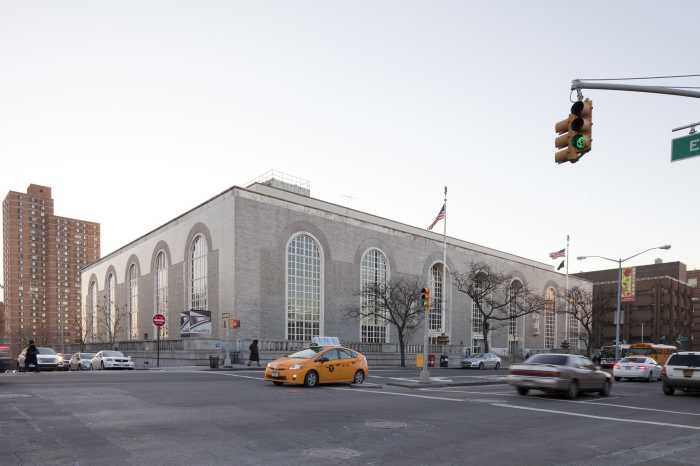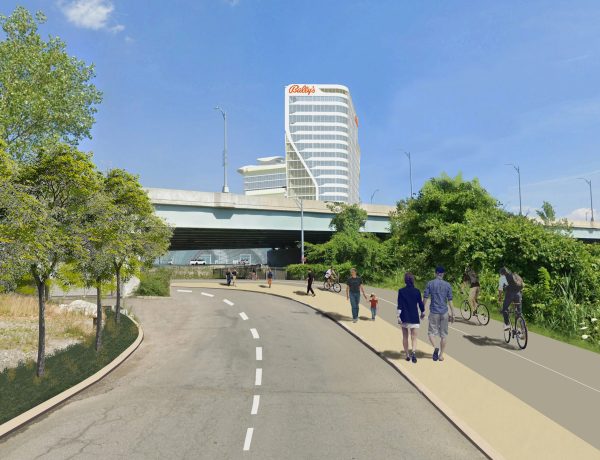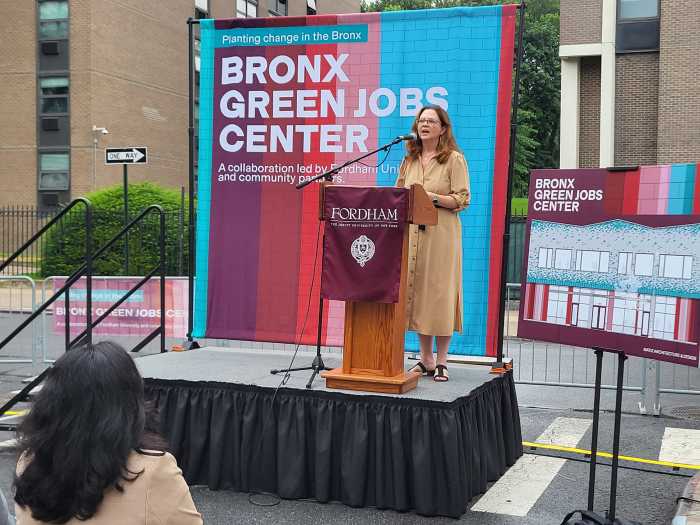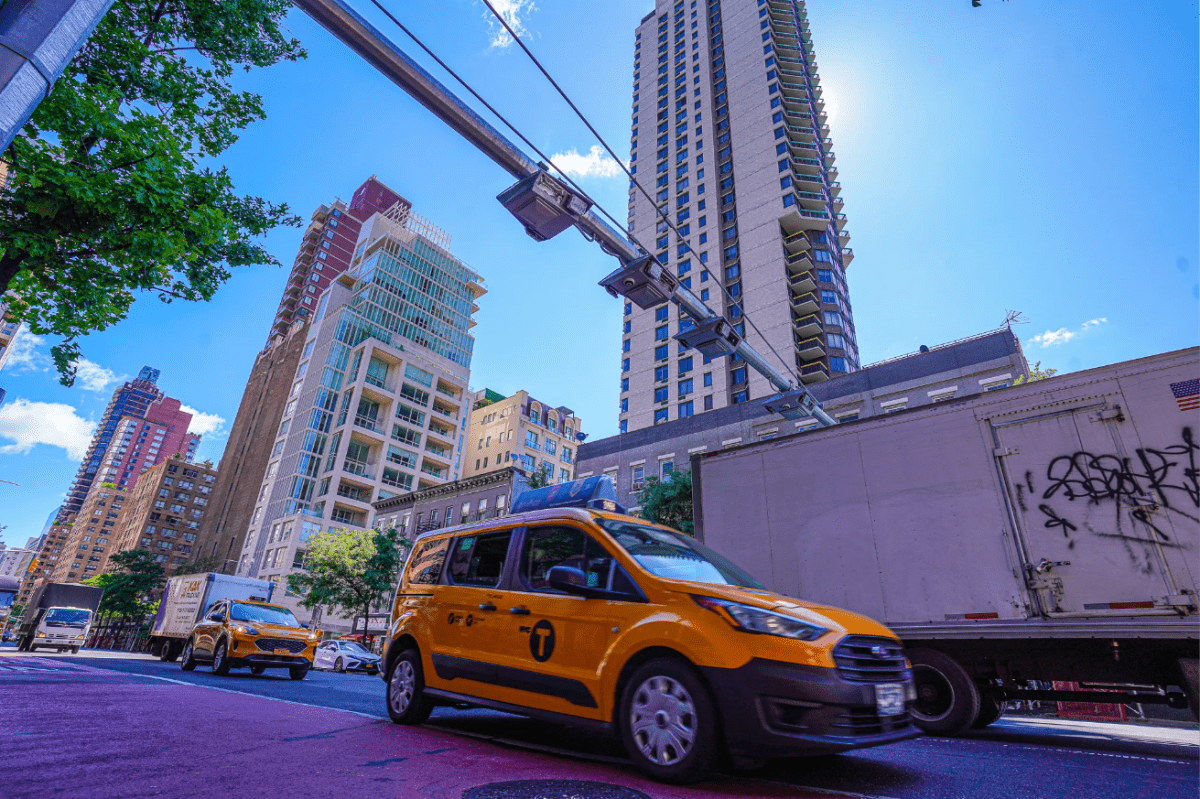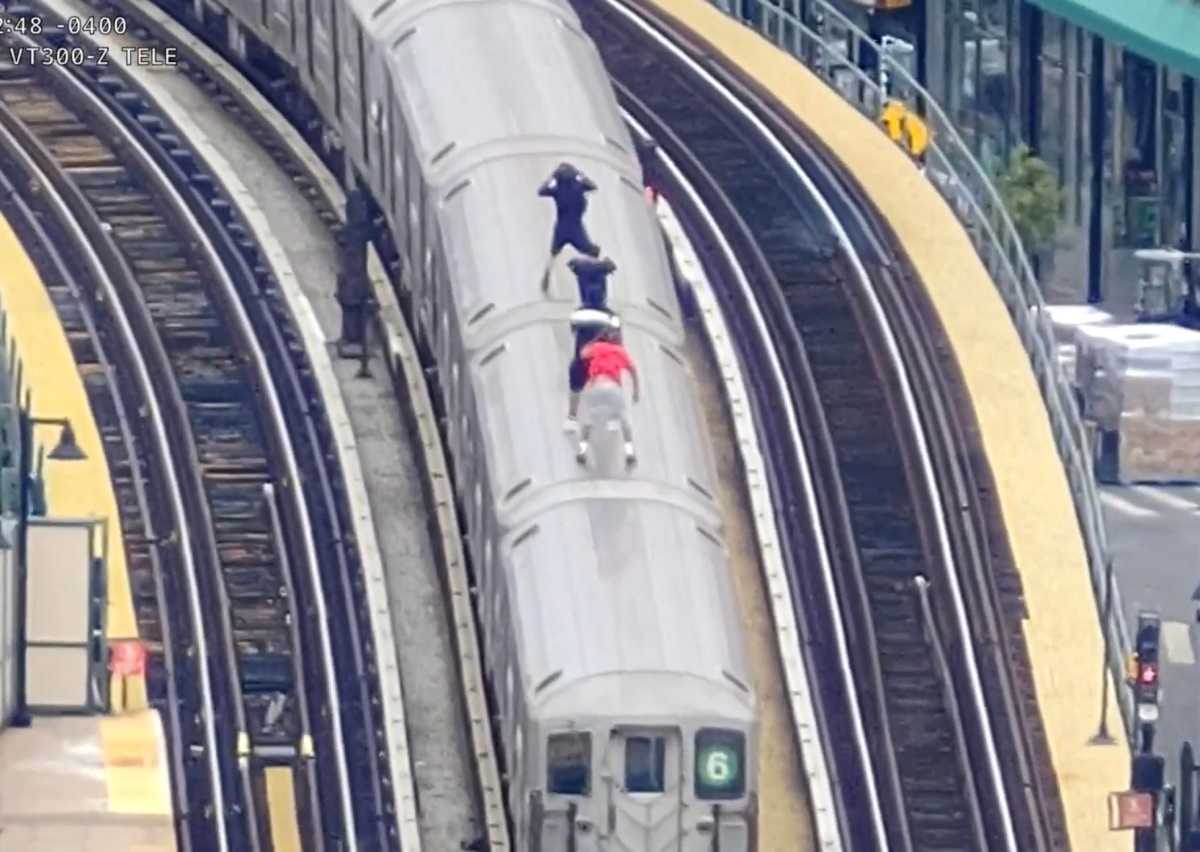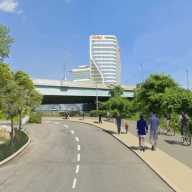A massive housing development in West Farms and Crotona Park East, after seven years of fighting its way through public review, is finally rising.
And its first phase is bringing low and middle-income apartments to one of the poorest areas of the borough.
Officials broke ground Jan. 23 on Compass Residences, the first phase of what will bring two 15-story apartment buildings —and with them 237 housing units — to a former industrial site at E. 172nd Street and Boone Avenue hard by the Sheridan Expressway.
Once all ten of the project’s buildings are completed, developer Signature Urban Properties will have converted land once allotted solely for industrial warehouses into over 1,300 housing units.
Median income
At least Compass’ first phase will offer housing entirely priced at under the area’s average median income. A slew of city agencies chipped in subsidies to fund the low-income apartments, all rentals, scheduled to be completed by 2016.
“We know that these two buildings will not only provide affordable housing to 237 families that need it, but will start the process of transforming these derelict industrial blocks into a beautiful addition to the surrounding neighborhood,” said Gifford Miller, one of Signature’s head honchos and a former City Council Speaker.
The five-acre plot where the buildings will rise was once used by warehouses, but was dormant for decades, though a stretch of Boone Avenue became of one borough’s top hubs for street art and will be destroyed by the development.
The City Council cleared Compass’ way when it approved one of the largest zoning changes in the city’s history in 2011.
Jobs protest
Borough President Ruben Diaz Jr. praised the project for offering affordable housing and bringing jobs to locals —but not everyone at the groundbreaking was as pleased.
A group of protestors from labor activist group Positive Workforce crashed the event, claiming that Monadnock Construction, the company tasked with finding workers for the first phase of the project, hires a “labor-lease” contractor that pays its workers an unfair rage.
While the 10 or so protestors raged on with megaphones outside, city officials tried to stay on message inside their heated tent.
“I’m just going to speak louder,” Diaz Jr. said, “Because nothing is going to stop me from saying how much this project will benefit the Bronx.”
Miller said he had not heard these protestors’ cries once over the project’s seven-year review process.
“It’s hard for me to address their concerns,” he said, “when the first time we’ve met is this morning.”

